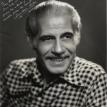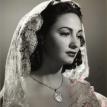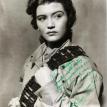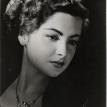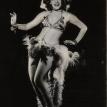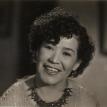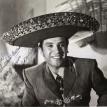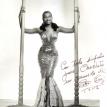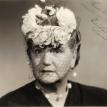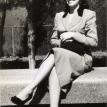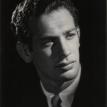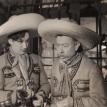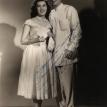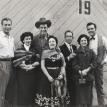Timeless Stars from the Golden Age of Mexican Cinema
Among the actors who attained the status of idols in the Mexican cinema, arguably Pedro Infante stands out the most. His first films were not aimed toward creating a myth. The result of his meeting with the director Ismael Rodriguez in the film Nosotros Los Pobres from 1947, served to consolidate the figure of Infante within the mythology of Mexican cinema. For many, Infante represented what every Mexican should be: a dutiful son, an unconditional friend, a romantic lover. In the extensive gallery of stars of Mexican cinema, Pedro Infante is the only one who could unify public sentiment. His popularity has continued to grow as new generations are born. His figure remains the most important in Mexican cinema.
Another one of the early mass idols in Mexican cinema was Jorge Negrete. In addition to his role as an actor, Negrete was also a prominent singer and one of the leading representatives of Mexican ranchera music. Negrete was one of the highest grossing actors of Latin American Cinema during almost the entire decade of the 1940s. His premature death led to collective mourning in Mexico.
Maria Felix was an exceptional case in the Mexican Cinema. A woman of a stunning physical beauty and strong personality, who immediately dominated the roles as a "femme fatale" in Mexican movies. Before the success of María Félix, women were in supporting roles (self-sacrificing mothers, submissive girlfriends). Based on the success of Félix, more movies with female themes began to be made. The film Doña Barbara from 1943, began the myth of María Félix as La Doña. The unique real personality of María merged with her on-screen personality leading to one of the most fascinating myths of the seventh art. Her legend was forged without her lifting a finger. The imagination of the people did all the work.
Mexican cinema in its Golden Age, mimicked the Star System that prevailed in Hollywood. Thus, unlike other film industries, Mexican cinema saw the development of the "cult of a star", in a way very similar to that of the American film industry. However, unlike what happened in Hollywood, Mexican film studios never had total power over the big stars, and this allowed them to grow independently and develop in a wide range of genres, mainly figures emerged in Mexican cinema in the early 1950s, much more versatile and complete than those of the previous decade.
Estrellas de la Epoca de Oro del Cine Mexicano
La Época de Oro del cine mexicano es un periodo en la historia del cine mexicano convirtiéndose en el centro de las películas comerciales de Latino américa y habla hispana durante dicho período. Abarca desde 1930 a 1969.
El cine mexicano continuó realizando obras de espléndida calidad a fines de los 30 y principios de los 40 y comenzó a explorar géneros como la comedia, el romance y el musical. En 1943, la película Flor Silvestre, reunió a un equipo cinematográfico conformado por el director Emilio "El Indio" Fernandez, el fotógrafo Gabriel Figueroa, el actor Pedro Armendariz y la actriz Dolores del Rio. Las cintas Maria Candelaria y La Perla, son consideradas obras cumbre de Fernández y su equipo, y llenaron al cine mexicano de un enorme prestigio, paseándose a nivel mundial en importantes festivales cinematográficos. María Candelaria fue galardonada en 1946 con el Premio del Grand Prix del Festival de Cannes en Francia, el nombre anterior de la Palma de Oro, siendo la primera película de habla hispana en obtenerlo. Por su parte, La perla fue galardonada con el Globo de Oro (Golden Globe) de la industria fílmica estadounidense, siendo la primera cinta hispana en recibir dicho reconocimiento.
Evita Muñoz "Chachita", Freddy Fernandez "El Pichi", Pedro Infante, Jorge Negrete, Maria Felix, Mario Moreno "Cantinflas", Sara Garcia, Pedro Armendariz, Andrea Palma, Maria Felix, Andres Soler, Silvia Pinal, Blanca Estela Pavon, German Valdes "Tin Tan", Carlos Lopez Moctezuma, Dolores del Rio, Elsa Aguirre, Carmen Molina, Domingo Soler, Irma Dorantes, Joaquin Cordero, Lilia del Valle, Ignacio Lopez Tarso, Katy Jurado, Julio Aleman, Kitty de Hoyos, Luis de Alba, Alma Rosa Aguirre, Enrique Rambal, Miguel Inclan, Lucia Guilmain, Angel Garasa, Enrique Aguilar, Amalia Aguilar, Miguel Corcega, Sergio Corona, Alfonso Arau, Amelia Wilhemy, Miguel Aceves Mejia, Celia Cruz, Pedro Vargas, Arturo de Cordova, Sylvia Derbez, Ricardo Montalban, Isela Vega, Rafael Alcaide, Victor Junco, Wolf Ruvinskis, Alfonso Indio Bedoya, Humberto Almazan, Adalberto Ramirez, Carlos Navarro y Luis Leal Solares.
Translate This Page



